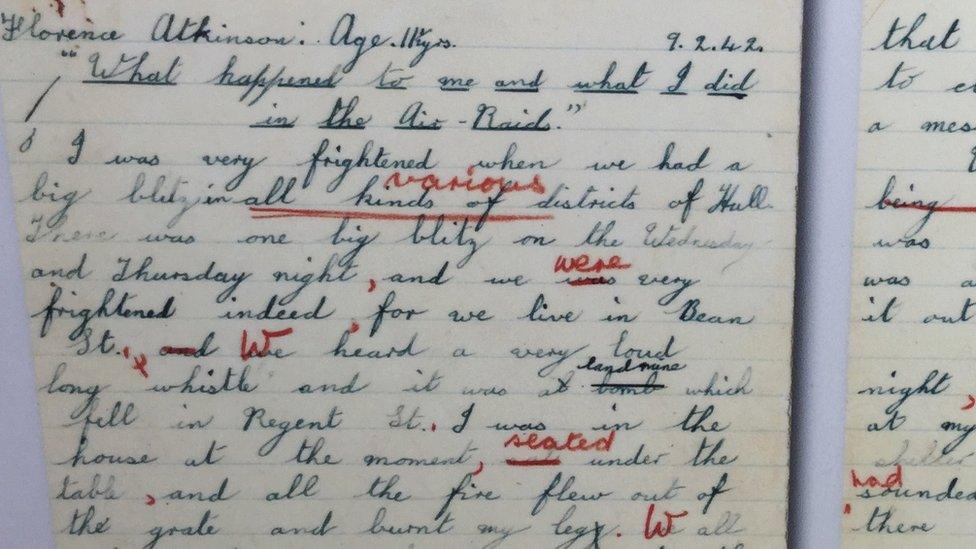Hull Blitz memorial unveiled remembering those killed
- Published
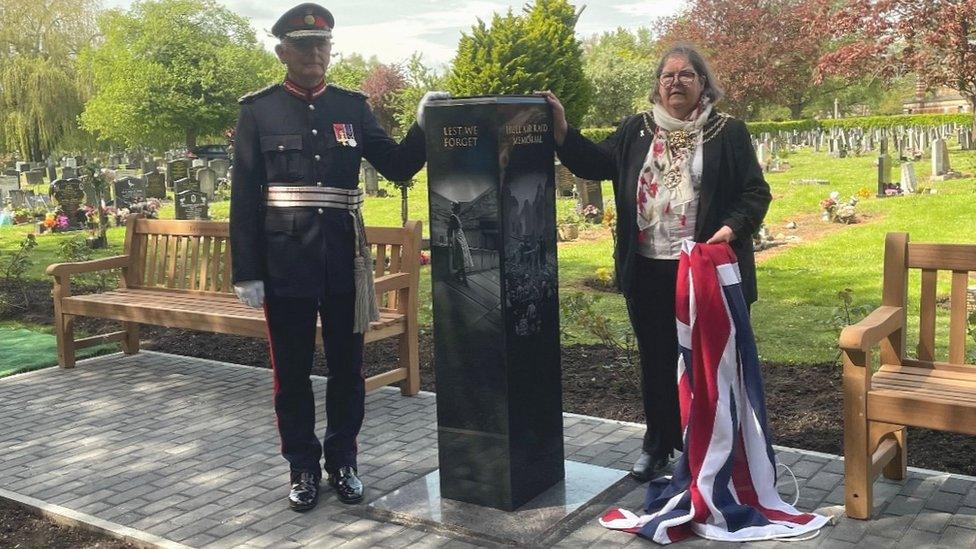
The new memorial remembering those buried in mass graves at Northern Cemetery was unveiled on Tuesday afternoon
A new memorial and remembrance area has been unveiled to those killed during the Hull Blitz.
German air raids killed about 400 people in the city between 7-9 May 1941, with 95% of Hull's houses left damaged during World War Two.
More than 300 men, women and children were buried in unmarked mass graves in Northern Cemetery, where a commemorative service was held.
The memorial remembers those buried at the graveyard on Chanterlands Avenue.
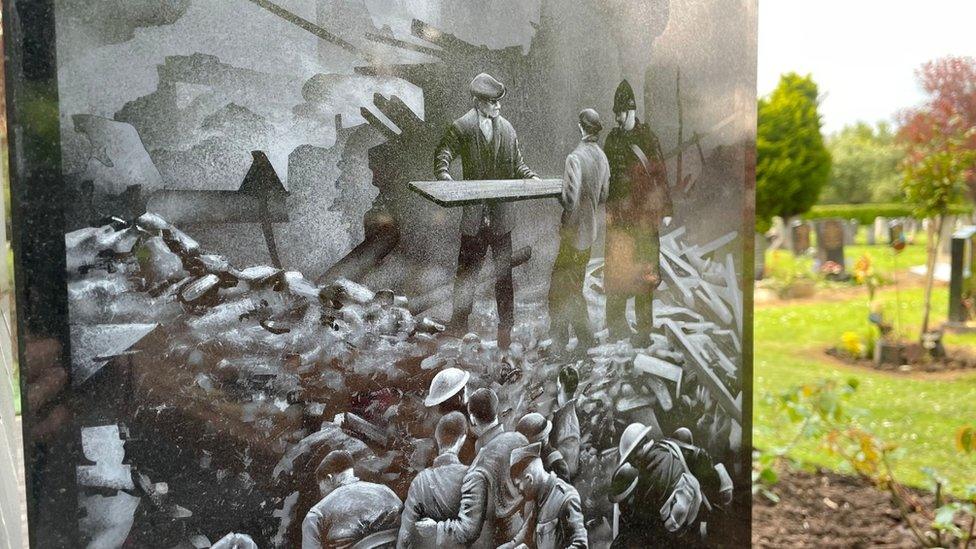
The new memorial stone at the graveyard on Chanterlands Avenue was designed by Alan Clough
The service was led by the Reverend Stephen Whalley, with representatives from the council, emergency services, the voluntary sector, standard bearers and the Armed Forces also in attendance.
During the course of the 1939-45 war, 1,200 people were killed and a further 3,000 were injured in the city.
Richard Barker, of Hull City Council, said: "We just wanted something a little bit more to remember the people in these large graves.
"It's absolutely vital, it gives us somewhere to meet, sit and remember - have a proper service and somewhere beautiful to lay a wreath."
Sylvia Usher, a local resident who put forward the initial suggestion for a new memorial in the graveyard, said: "I have memories as a schoolgirl of being in France and seeing the World War One sites.
"After going home I told my parents about the unmarked, unnamed graves.
"When I realised this was similar I was embarrassed to realise I'd walked across a grave to people who had suffered, I just felt we must try and get it properly marked."

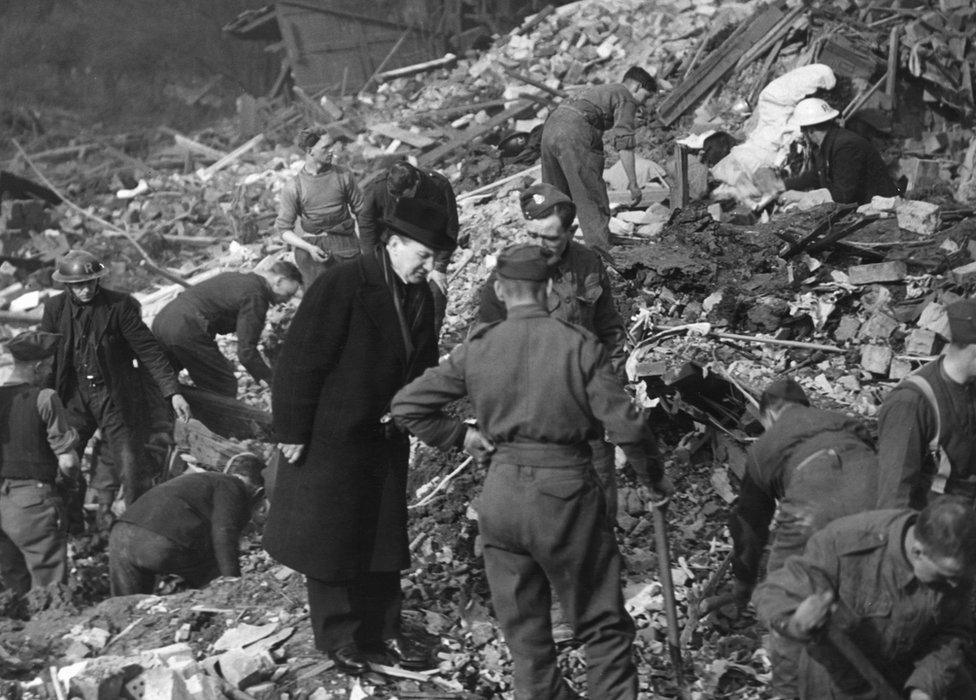
Bombs caused extensive damage during the city's blitz, with homes in Bean Street turned to rubble
Hull Blitz in numbers:
People killed: 1,200
People injured: 3,000
People homeless: 152,000
Houses damaged: 86,715
Source: A North-East Coast Town - T Geraghty

Follow BBC Yorkshire and Lincolnshire on Facebook, external, Twitter, external and Instagram, external. Send your story ideas to yorkslincs.news@bbc.co.uk, external
Related topics
- Published7 May 2021
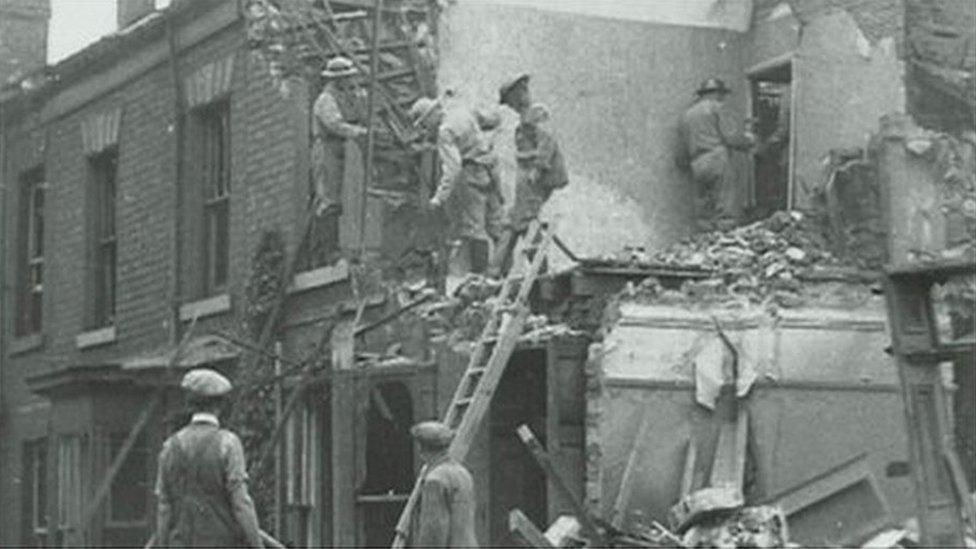
- Published20 January 2018
